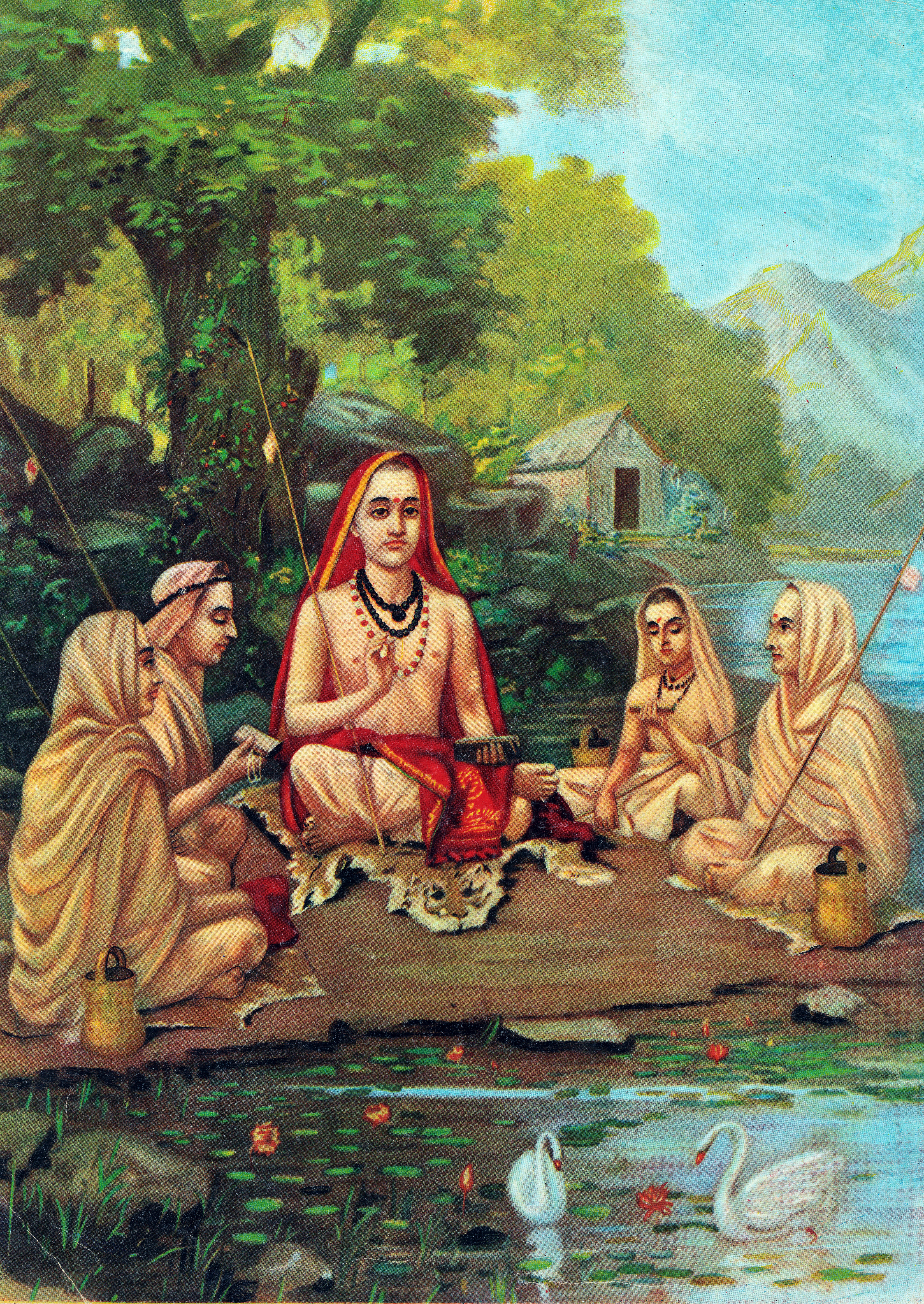Source: Atma Bodha (1987), p. 98-101: Quote nr. 52 - 54.
Context: Though he lives in the conditionings (Upadhis), he, the contemplative one, remains ever unconcerned with anything or he may move about like the wind, perfectly unattached.
On the destruction of the Upadhis, the contemplative one is totally absorbed in "Vishnu", the All-pervading Spirit, like water into water, space into space and light into light.
Realise That to be Brahman, the attainment of which leaves nothing more to be attained, the blessedness of which leaves no other blessing to be desired and the knowledge of which leaves nothing more to be known.
Famous Adi Shankara Quotes
Source: Atma Bodha (1987), p. 16: Quote nr. 9.
Source: Atma Bodha (1987), p. 121: Quote nr. 67.
Source: Atma Bodha (1987), p. 107: Quote nr. 58.
Source: Atma Bodha (1987), p. 123: Quote nr. 68.
Refer to current Sringeri Shankaracharya discourses in Telugu and Tamil (two different pravachans). Do not blindly translate "Mithya" as Unreal. Do not misrepresent what Adi Shankaracharya preached in Sanskrit to his students and world using useless English translations.
Alternative translation: Brahman is the only truth, the world is illusion, and there is ultimately no difference between Brahman and individual self.
Translation in Global Encyclopaedia of Indian Philosophy (2010), by N.K. Singh and A.P. Mishra, p. 16.
Adi Shankara Quotes about the truth
Original: (hi) Brahma satyam jagat mithyam, jivo brahmaiva naparah
Sri Aurobindo,1910-1914, quoted from Sri Aurobindo, ., Nahar, S., Aurobindo, ., & Institut de recherches évolutives (Paris). India's rebirth: A selection from Sri Aurobindo's writing, talks and speeches. Paris: Institut de Recherches Evolutives. 3rd Edition (2000). https://web.archive.org/web/20170826004028/http://bharatvani.org/books/ir/IR_frontpage.htm
Adi Shankara Quotes
Source: Atma Bodha (1987), p. 82: Quote nr. 44.
“All objects are pervaded by Brahman. All actions are possible because of Brahman”
Atma Bodha (1987)
Context: All objects are pervaded by Brahman. All actions are possible because of Brahman: therefore Brahman permeates everything as butter permeates milk.
p. 109: Quote nr. 59.
“Action cannot destroy ignorance, for it is not in conflict with or opposed to ignorance.”
Source: Atma Bodha (1987), p. 6: Quote nr. 3.
Context: Action cannot destroy ignorance, for it is not in conflict with or opposed to ignorance. Knowledge does verily destroy ignorance as light destroys deep darkness.
Source: Atma Bodha (1987), p. 14: Quote nr. 8.
Decolonizing the Hindu Mind (2001) by Koenraad Elst
“It is not possible to speak with too much applause of so excellent a work.”
Sir William Jones, quoted in Londhe, S. (2008). A tribute to Hinduism: Thoughts and wisdom spanning continents and time about India and her culture. New Delhi: Pragun Publication.
“There is no Metaphysics superior to that of Shankara.”
Karl Jaspers (1883-1969) to Professor K. Satchidananda Murthy about Shankara's commentary. As quoted in Londhe, S. (2008). A tribute to Hinduism: Thoughts and wisdom spanning continents and time about India and her culture. New Delhi: Pragun Publication.
